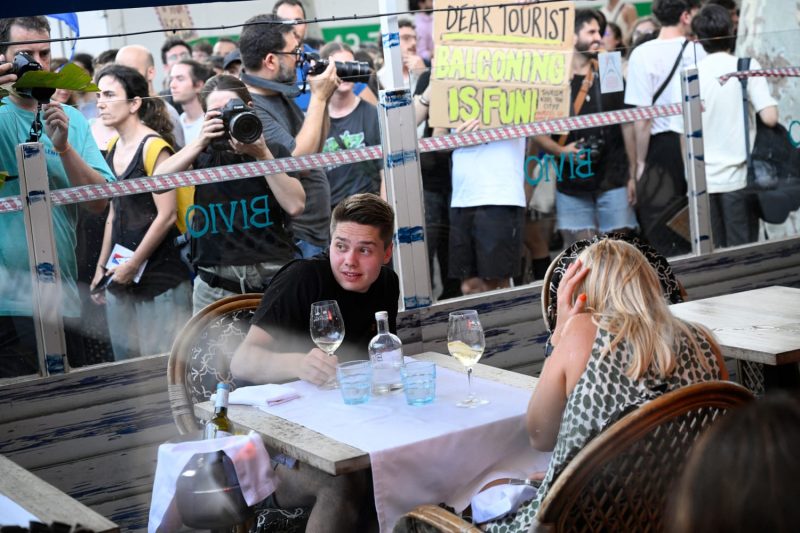
Barcelona Protesters Make a Splash with Anti-Tourism Message: ‘Tourists, Beware!’
The recent unrest in Barcelona, where protesters have been targeting tourists in a less than welcoming manner, has highlighted the growing tensions between locals and visitors in popular travel destinations. The actions of the protesters, including throwing items and spraying travelers with water while shouting tourists go home, have sparked a debate on the impact of tourism on local communities and the need for sustainable tourism practices.
Protests in Barcelona have not been uncommon in recent years, as locals have expressed frustration over issues such as overcrowding, rising living costs, and the commodification of their city. However, the targeting of tourists in such a hostile manner is a troubling escalation of these grievances. While it is understandable that residents may feel overwhelmed by the sheer number of visitors descending on their city, resorting to aggressive tactics to drive them away is not the solution.
Tourism is undeniably a double-edged sword for cities like Barcelona. On one hand, it brings in valuable revenue, supports local businesses, and creates jobs for residents. On the other hand, it can lead to overtourism, environmental degradation, and the displacement of local communities. Finding the right balance between reaping the benefits of tourism and preserving the quality of life for residents is a delicate challenge that requires cooperation and understanding from all parties involved.
Barcelona’s experience serves as a cautionary tale for other popular travel destinations around the world. It underscores the urgent need for sustainable tourism practices that prioritize the well-being of local communities, respect their cultural heritage, and mitigate the negative impacts of mass tourism. Initiatives such as promoting off-the-beaten-path destinations, regulating tourist accommodations, and investing in infrastructure that benefits both visitors and residents are crucial steps towards achieving this balance.
Moreover, dialogue and engagement between locals, tourists, and policymakers are essential to fostering mutual respect and fostering a sense of shared responsibility for the sustainable development of tourism. By listening to the concerns of residents, addressing issues of inequality and gentrification, and supporting community-led initiatives, cities can create a more inclusive and harmonious environment for both residents and visitors.
In conclusion, the recent protests in Barcelona shed light on the complex dynamics between locals and tourists in popular travel destinations. While tensions are inevitable in places where tourism plays a significant role in the economy, it is essential to work towards a more sustainable and inclusive tourism model that benefits everyone involved. By prioritizing community well-being, preserving cultural identity, and promoting responsible travel practices, cities can strike a balance that ensures the longevity and prosperity of their tourism industry.
